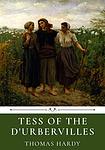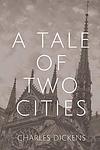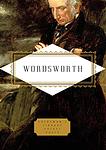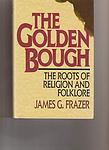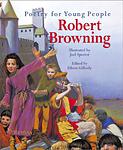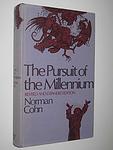The Greatest British "Humanities" Books of All Time
Click to learn how this list is calculated.
This list represents a comprehensive and trusted collection of the greatest books. Developed through a specialized algorithm, it brings together 300 'best of' book lists to form a definitive guide to the world's most acclaimed books. For those interested in how these books are chosen, additional details can be found on the rankings page.
Genres
The category of "Humanities" in books encompasses a wide range of subjects that explore the human experience and expression. This includes literature, philosophy, history, art, music, religion, and language. These books aim to deepen our understanding of the world and ourselves, and to explore the complexities of human culture and society. Through the study of humanities, readers can gain insight into the past, present, and future of humanity, and develop a greater appreciation for the diversity of human thought and expression.
Countries
Date Range
Reading Statistics
Click the button below to see how many of these books you've read!
Download
If you're interested in downloading this list as a CSV file for use in a spreadsheet application, you can easily do so by clicking the button below. Please note that to ensure a manageable file size and faster download, the CSV will include details for only the first 500 books.
Download-
1. Tess of the d'Urbervilles by Thomas Hardy
This is a tragic tale of a young woman named Tess who comes from a poor family in rural England. Tess is sent to work for a wealthy family, where she is seduced by a man who abandons her after she becomes pregnant. The baby dies, and Tess is ostracized by her community. She falls in love with a kind man, but when she confesses her past, he rejects her. Desperate and heartbroken, Tess murders her former seducer and is eventually captured and executed. The novel explores themes of fate, injustice, and the oppressive sexual morals of its time.
-
2. Howards End by E. M. Forster
This novel explores class relations and conflicting values in turn-of-the-century England. The narrative revolves around three families: the wealthy, capitalist Wilcoxes; the cultured, idealistic Schlegels; and the lower-middle class Basts. As their lives intertwine, the story grapples with themes of wealth, love, and death, and the struggle for personal connection in an increasingly impersonal society. The titular "Howards End" is a country home, and it becomes a symbol of England's past, present, and future.
-
3. A Tale of Two Cities by Charles Dickens
Set against the backdrop of the French Revolution, this classic novel explores themes of class struggle, sacrifice, and resurrection. The narrative follows the lives of several characters, including a dissipated English lawyer, a man who is a long-term prisoner in the Bastille, and a woman who becomes embroiled in the political turmoil of the time. The story is a riveting tale of love and sacrifice, with the infamous guillotine looming in the background, symbolizing the violence and unrest of the era.
-
4. The Mayor of Casterbridge by Thomas Hardy
The Mayor of Casterbridge is a tragic novel set in the fictional town of Casterbridge, based on Dorchester in the English county of Dorset. The story follows the life of Michael Henchard, a skilled hay-trusser who, in a fit of drunken anger, sells his wife and daughter at a fair. When he sobers up, he is filled with regret and swears off alcohol for 21 years. He works hard and eventually becomes a successful businessman and the mayor of Casterbridge. However, his past returns to haunt him when his wife and daughter come back into his life, leading to a series of events that result in his downfall.
-
5. On Liberty by John Stuart Mill
This influential philosophical work explores the concept of personal freedom and societal limits, arguing that individuals should have the right to act as they want, provided they do not harm others. The book elaborates on the nature and limits of the power that can be legitimately exercised by society over the individual, and champions individuality and nonconformity. It also discusses freedom of speech, asserting that all opinions should be openly expressed to prevent any single viewpoint from becoming dogma.
-
6. The Making of the English Working Class by E. P. Thompson
This book is a comprehensive historical analysis of the formation of the English working class from the late 18th century to the mid-19th century. The author meticulously examines various aspects of society including the Industrial Revolution, the rise of Methodism, and political movements, arguing that the working class was not a byproduct of economic factors alone, but was actively self-formed through struggles over issues like workers' rights and political representation. The book is widely regarded as a seminal text in social history due to its focus on the experiences and agency of ordinary people.
-
7. An Essay Concerning Human Understanding by John Locke
This philosophical work explores the concept of human understanding, proposing that all knowledge is derived from experience. The author argues against innate ideas, suggesting instead that the mind is a blank slate at birth, filled over time through sensory and reflective experiences. The book covers a wide range of topics, including language, memory, identity, and the limits of human knowledge, and is considered a foundational text in empiricism.
-
8. Bridget Jones's Diary by Helen Fielding
The book is a humorous and honest portrayal of a single woman's life in London. The protagonist, a 30-something year old woman, struggles with her weight, smoking, and alcohol consumption, all while trying to navigate her love life and career. The story is told through her personal diary entries, which include her daily calorie counts, number of cigarettes smoked, and other personal anecdotes. It's a modern take on romantic relationships and self-improvement, with a healthy dose of comedy.
-
9. The Prelude by William Wordsworth
"The Prelude" is an autobiographical, epic poem that explores the author's spiritual growth and development. The narrative takes the reader through the poet's childhood and youth, his experiences in the French Revolution, and his subsequent disillusionment. It also delves into his relationship with nature, which he sees as a powerful, spiritual force that has shaped his life and consciousness. The poem is a reflection on the poet's personal journey towards understanding his own mind and the world around him.
-
10. The Golden Bough by James George Frazer
"The Golden Bough" is a comprehensive study on mythology and religion, exploring the common themes found in different cultures around the world. The author uses a wide range of sources to argue that human belief progressed through three stages: primitive magic, replaced by religion, which in turn was replaced by science. The book delves into various rituals and customs, including the concept of the dying god in mythology and the role of fertility rites in agriculture. The author's theories have had a profound influence on both literature and anthropology.
-
11. The Open Society by Karl Popper
This book is a critique of totalitarianism and a defense of liberal democracy. The author argues against the concept of a perfect, immutable society, instead advocating for an "open society" that allows for constant change and improvement. He criticizes theories of historical determinism and the notion of "the collective", emphasizing the importance of individual freedom and human rights. The book also examines and challenges the philosophies of Plato, Hegel, and Marx, linking their ideas to the rise of fascism and communism in the 20th century.
-
12. Pygmalion by George Bernard Shaw
"Pygmalion" is a play that explores the transformative power of education and the nature of language and communication. It follows the story of a cockney flower girl named Eliza Doolittle who is taught to speak and behave like a duchess by a pompous phonetics professor, Henry Higgins. Throughout the process, Eliza develops self-respect and personal dignity, challenging the Victorian society's rigid class system. The play also questions the idea of 'making' someone and the moral responsibility that comes with it.
-
13. A Study of History by Arnold J. Toynbee
"A Study of History" is an extensive 12-volume universal history, exploring the development and decay of world civilizations throughout the ages. The author proposes that civilizations rise and fall based on their responses to challenges, both physical and social. The book also puts forth the idea that religions play a crucial role in the rise of civilizations and that the failure of a civilization's creative power can lead to its decline. The work is renowned for its scholarly depth and its controversial theories about the cyclical nature of history.
-
14. The Complete Poems of Samuel Taylor Coleridge by Samuel Taylor Coleridge
This book is a comprehensive collection of the works of a renowned English poet, featuring his most famous pieces as well as lesser-known works. The poems are known for their romantic and imaginative style, with themes ranging from nature and the supernatural to human emotion and philosophical musings. The collection offers a deep insight into the poet's creative and intellectual mind, making it a valuable resource for literature enthusiasts and scholars alike.
-
15. Two Treatises of Government by John Locke
"Two Treatises of Government" is a seminal work in political philosophy, which outlines the author's theories on social contract and natural rights. The first treatise refutes the divine rights of kings, arguing that political power does not come from God but from the people. The second treatise introduces the idea of a government that exists to protect the rights of its citizens, particularly life, liberty, and property. The author posits that if a government fails to protect these rights, the people have the right to overthrow it. This work greatly influenced the development of democratic thought and the structure of modern democratic governments.
-
16. The History of Rasselas, Prince of Abissinia by Samuel Johnson, Abraham Raimbach, Robert Smirke
This book explores the philosophical journey of an Ethiopian prince, Rasselas, who escapes his luxurious palace to experience the world and understand the true nature of life. Throughout his travels, he encounters a wide array of people and their ways of life, from hermits to poets, and from scholars to merchants. Each encounter provides him with a different perspective on life, happiness, and the human condition. Despite his many experiences, Rasselas is left with more questions than answers, reflecting the complexity and ambiguity of life.
-
17. Robert Browning's Poetry by Robert Browning
This book is a compilation of poems by a renowned 19th-century English poet, known for his mastery in dramatic monologue. The collection showcases his unique style and his exploration of themes such as love, death, and spirituality. The poems reveal his philosophical insights and his ability to create complex psychological portraits of characters, thereby offering readers a profound understanding of the human condition.
-
18. Twelfth Night: Or, What You Will by William Shakespeare
Twelfth Night: Or, What You Will is a comedic play that revolves around mistaken identities and love triangles. The story follows the adventures of Viola, who, after being shipwrecked and separated from her twin brother Sebastian, disguises herself as a man named Cesario. As Cesario, she enters the service of Duke Orsino and falls in love with him, even as he sends her to woo the Countess Olivia on his behalf. However, Olivia falls in love with Cesario, not knowing he is actually Viola in disguise. Further confusion ensues when Viola's presumed-dead brother Sebastian arrives, leading to mistaken identities, hilarious mix-ups, and ultimately, happy resolutions.
-
19. The Art of Memory by Frances A. Yates
"The Art of Memory" is a historical exploration of the ancient art of memory, and its influence on Western culture. The book delves into the memory training techniques used by ancient Greeks and Romans, and traces their evolution and application through the Middle Ages and Renaissance. The author also explores how these techniques influenced the development of philosophy, science, education, and religion throughout history.
-
20. The Pursuit of the Millennium by Norman Cohn
This book provides a comprehensive historical analysis of millenarian movements in Europe from the 11th to 16th centuries. It delves into the social and psychological factors that led to the rise of these movements, which were characterized by the belief in an impending apocalypse followed by a new, heavenly order on earth. The author examines a number of these movements in detail, including the Crusades, the flagellant movements, and the Anabaptist kingdom of Münster, and argues that these millenarian ideologies were often used to justify violence and social revolution.
-
21. The Idea of History by R. G. Collingwood
"The Idea of History" is a philosophical examination of the concept of history, exploring its nature, the different methods of historical study, and its importance and role in society. The author asserts that history is not just a chronicling of past events, but a complex interaction between the historian and the facts, where the historian is not merely a passive recorder of facts, but an active participant in shaping the interpretation of those facts. The book also delves into the philosophy of history, discussing the idea of historical truth, the problem of historical causation, and the nature of historical evidence.
-
22. She Stoops to Conquer by Oliver Goldsmith
"She Stoops to Conquer" is a comedic play that revolves around the story of a wealthy countryman, Mr. Hardcastle, who arranges for his daughter, Kate, to meet Charles Marlow, the son of a wealthy Londoner, hoping the pair will marry. However, Marlow is nervous around upper-class women, yet gets along fine with lower-class women. Kate learns of this and pretends to be 'common' to get to know him. The play concludes with Kate revealing her true identity, and Marlow, who is in love by this point, is relieved she's actually of the upper class. The play explores themes of class, courtship, and the deceptive nature of appearances.
-
23. Oxford English Dictionary by Oxford University Press
This book is a comprehensive and authoritative resource that provides definitions, etymology, and pronunciation for more than half a million English words. It is widely regarded as the accepted authority on the English language. The dictionary includes words from across the English-speaking world and from all areas of human knowledge, and is continually updated to reflect the evolution of the language.
-
24. Under Western Eyes by Joseph Conrad
Set in St. Petersburg and Geneva, the novel follows a young Russian student named Razumov who becomes embroiled in revolutionary politics after unwittingly helping a fellow student who has assassinated a high-ranking official. Struggling with his own beliefs and loyalties, Razumov is sent to Geneva as a spy, where he becomes entangled with the exiled revolutionaries, including a woman named Haldin. The novel explores themes of identity, betrayal, and the ideological divide between East and West.
-
25. The Hedgehog and the Fox by Isaiah Berlin
"The Hedgehog and the Fox" is an essay that presents a philosophical and intellectual dichotomy based on a line from an ancient Greek poet, "The fox knows many things, but the hedgehog knows one big thing." The author uses this concept to categorize thinkers and writers into two groups: hedgehogs, who view the world through the lens of a single defining idea, and foxes, who draw on a wide variety of experiences and for whom the world cannot be boiled down to a single idea. The author uses this framework to analyze the works of various historical figures and philosophers.
Reading Statistics
Click the button below to see how many of these books you've read!
Download
If you're interested in downloading this list as a CSV file for use in a spreadsheet application, you can easily do so by clicking the button below. Please note that to ensure a manageable file size and faster download, the CSV will include details for only the first 500 books.
Download